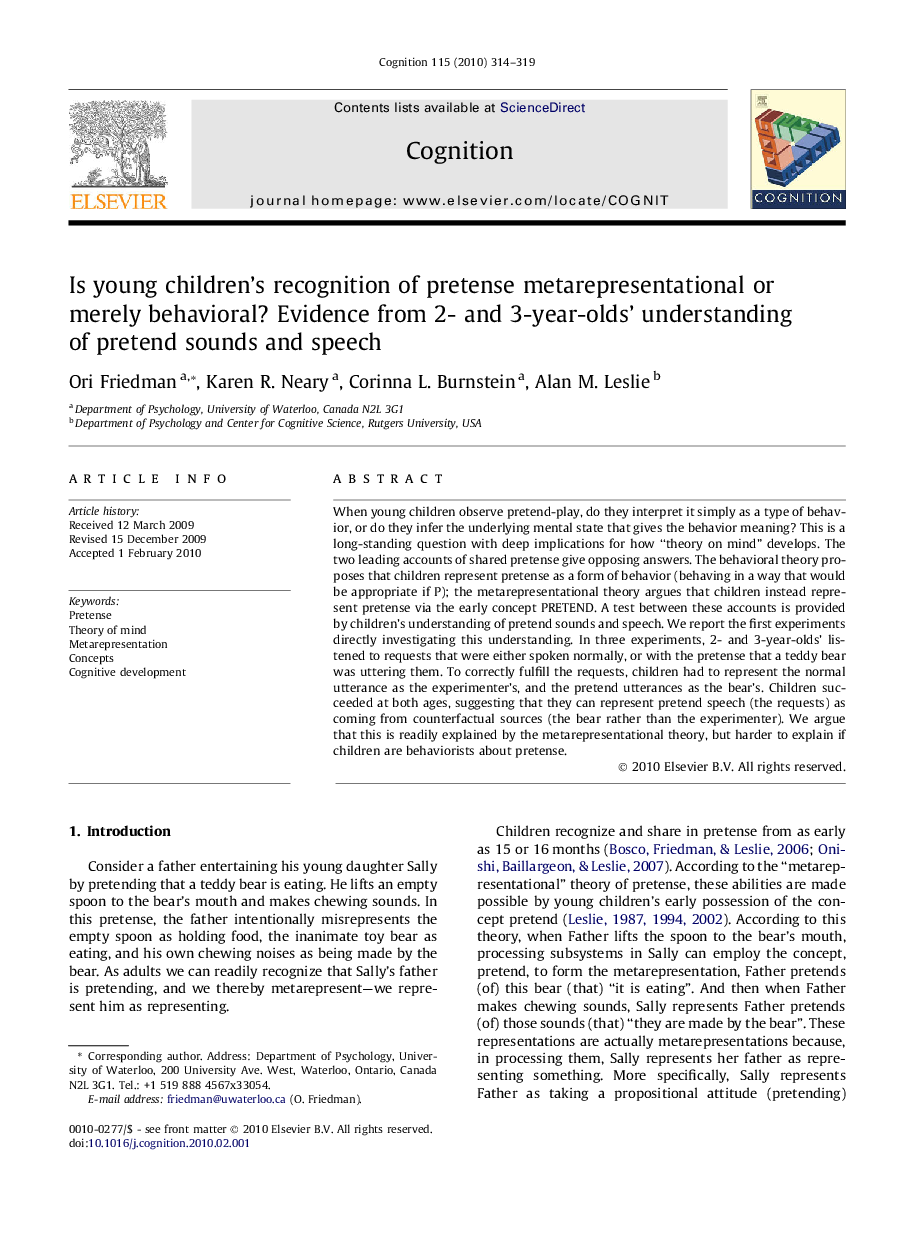| کد مقاله | کد نشریه | سال انتشار | مقاله انگلیسی | نسخه تمام متن |
|---|---|---|---|---|
| 927003 | 921929 | 2010 | 6 صفحه PDF | دانلود رایگان |

When young children observe pretend-play, do they interpret it simply as a type of behavior, or do they infer the underlying mental state that gives the behavior meaning? This is a long-standing question with deep implications for how “theory on mind” develops. The two leading accounts of shared pretense give opposing answers. The behavioral theory proposes that children represent pretense as a form of behavior (behaving in a way that would be appropriate if P); the metarepresentational theory argues that children instead represent pretense via the early concept PRETEND. A test between these accounts is provided by children’s understanding of pretend sounds and speech. We report the first experiments directly investigating this understanding. In three experiments, 2- and 3-year-olds’ listened to requests that were either spoken normally, or with the pretense that a teddy bear was uttering them. To correctly fulfill the requests, children had to represent the normal utterance as the experimenter’s, and the pretend utterances as the bear’s. Children succeeded at both ages, suggesting that they can represent pretend speech (the requests) as coming from counterfactual sources (the bear rather than the experimenter). We argue that this is readily explained by the metarepresentational theory, but harder to explain if children are behaviorists about pretense.
Journal: Cognition - Volume 115, Issue 2, May 2010, Pages 314–319